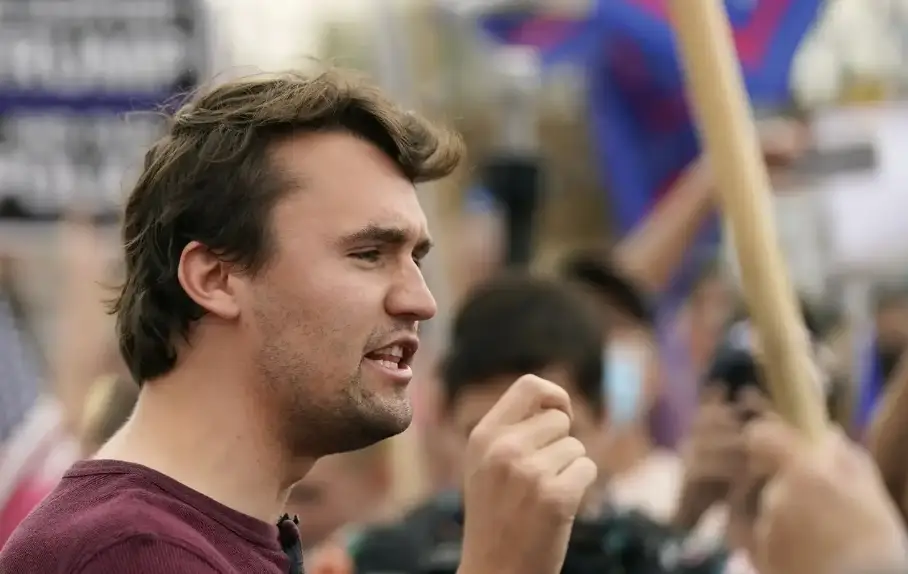Memorial Service Reflects Evangelical Worship Style
There was music, prayers, and forgiveness at Charlie Kirk’s memorial service, which was like an evangelical worship service. People who went to the service said it was very spiritual and reflected faith-based traditions that were very important to Kirk’s personal and political identity.
The mood was like that of a church service, combining religious devotion with memories of Kirk’s activism. His widow’s plea for forgiveness brought out Christian values and added to the theme of grace in the face of tragedy.

Source: The Economic Times
Leaders Frame Kirk as Prophet and Martyr
People who spoke at the memorial called Kirk both a prophet and a martyr, making him a religious symbol. Vice President Vance and President Trump both helped him identify as an evangelical by connecting his faith to larger political movements.
Trump compared the event to an old-fashioned revival, saying that Kirk’s influence came from a spiritual place. This speech showed how religion and politics came together, making Kirk’s legacy seem like it was tied to evangelical faith.
Early Faith Foundations Guided His Life
Kirk’s Christian school education had a big impact on how he sees the world, making faith a big part of his personal growth and public activism. He talked a lot about making the choice to follow Christ completely early on.
After high school, he read the Bible and prayed more to deepen his spiritual life. These principles helped him start Turning Point USA, which incorporated Christianity into his ideas about leadership and running an organization.
Recommended Article: Charlie Kirk Assassination: Text Messages Spark Wave of Conspiracy Theories
Turning Point USA and Religious Expansion
Turning Point USA began as a conservative group, but it later grew into TPUSA Faith, which is a group that combines politics and religion. The goal of this project was to fight progressive ideas and make conservative ideas stronger in churches across the country.
Kirk stressed faith-based activism by focusing on evangelical churches. His work showed how conservative politics and Christianity worked together to get younger people involved in both religious and political causes.
Religious Beliefs Shaped Political Stances
Kirk’s evangelical beliefs influenced his political views on abortion, gender identity, and DEI policies, which he condemned as unbiblical. He said that churches, not governments, should be in charge of helping people with social and economic problems.
His rhetoric put political issues in a religious light. Kirk bolstered religious legitimacy by aligning conservative policies with scripture, which boosted his credibility among faith-driven supporters in political and cultural debates.
Shifts in Views on Religion and State
At the start of his career, Kirk defended the separation of church and state by using secular reasoning to support his policy ideas. But later, he changed his mind and said that separation was made up and didn’t fit with American values.
He said that by 2024, freedom needed a Protestant Christian population. This change showed how his Christian nationalist ideas were growing, connecting America’s political system directly to the dominance of faith-based culture.
Martyrdom Narrative Emerges After Death
After Kirk was killed, evangelical leaders called him a martyr and compared his death to that of saints in the Bible. People like Cissie Graham Lynch talked about how important he was as a symbol for faith-based activism.
Some people said that calling Kirk a martyr could make extremism worse. People who watched said that Christian nationalism could get worse, pointing out that history shows that stories of martyrdom often lead to violent or divisive movements.















